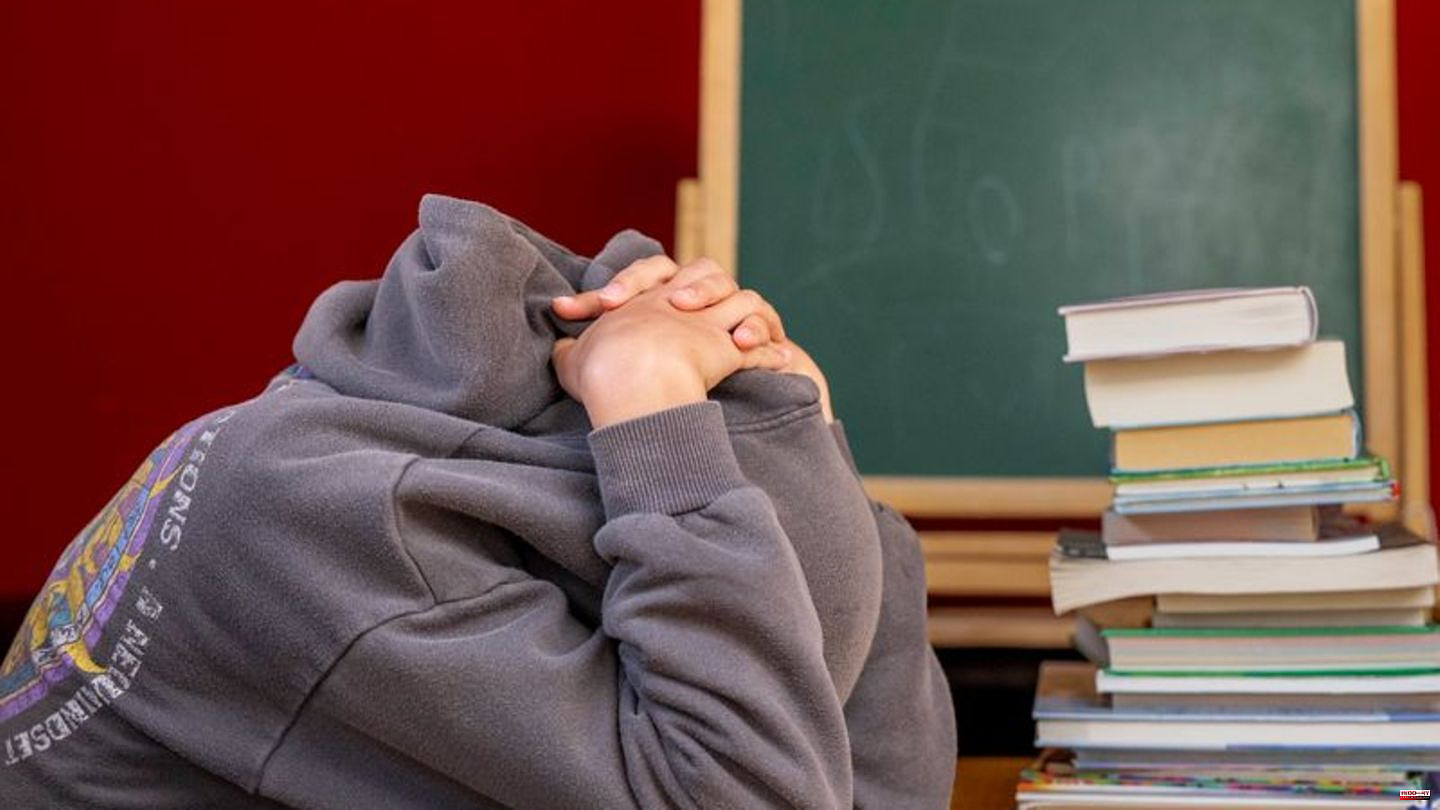Hannah comes home from class frustrated and sad. Once again. The nine-year-old is too quick in the head. She is highly gifted, permanently underchallenged, bored, and at the same time pretends not to offend her classmates in the fourth grade as a "smartass".
"School is very stressful for Hannah. Many gifted children do poorly in school because they are not seen, are not encouraged. There is no information, no support, no contact person, no understanding," says her mother Petra. "The school system in Germany is not designed for the gifted." Hannah and her mother's real names are different, they don't want to read their names in public.
200,000 gifted children
The Society for the Gifted Child (DGhK) knows: "This is a huge issue and definitely not a luxury problem." In 2021/22, more than 200,000 children and young people among the almost 8.4 million pupils at general schools could be classified as highly or extremely gifted, according to Vice Chairwoman Sabrina Henning. "Not all highly or extremely gifted people are also top performers. Their intellectual needs are often not perceived, they cannot develop." The psychologist reports from her counseling work in Hamburg: "We see sad fates - some children refuse school, rebel, are unhappy, physically ill, become apathetic or end up in psychiatric wards."
In the pandemic, on the other hand, homeschooling was a blessing: "Learning at your own pace was like a liberation for many." According to the DGhK, an intelligence quotient of 130 or more is considered gifted and 145 or more is highly gifted. But even with an IQ of 115 there is an above-average talent that already requires special support.
Initiative promotes talented children
Education policy has taken the issue into account: in 2018, the federal and state governments launched the "Performance Makes School" initiative. Goal: "To promote the school development opportunities of talented children and young people - regardless of origin, gender and social status - in regular classes". In the first phase until 2022, 300 such "Lemas" schools are on board. The ministers of education had already emphasized: "Promotion of talent is a fundamental part of the education and training mandate of all educational institutions." In the federal states, additional courses, early school enrollment or skipping grades should be made possible.
In practice, however, there is a serious problem, says Henning. And getting a place at a suitable "Lemas" school is difficult, almost hopeless in rural areas. Persistent underexertion means stress. "Many children fall through the system, that must not happen," warns the expert. "If a child has to write the A 20 times over and over again, even though they can already write, they use a stick." Too little is invested in education - too large classes, too few teachers, no room for manoeuvre. "The cake is small - and for the gifted it looks bleak." Another problem is ignorance in the school authorities and among most teachers.
"Gifted children are blessed, but they can perish," says Wiebke Lush, who heads a psychological institute in Rietberg in East Westphalia for the support and support of gifted and highly gifted families. "The children don't think and develop in a linear way. The gifted are often three years ahead of their peers, and the very gifted even up to six years ahead. They have enormously high cognitive, but also social and emotional skills." This is actually a treasure from which the social environment could also benefit - if you raise it properly.
Talented people often stand out as class clowns or disruptors
Lush, who has also written a book on gifted education, complains: "People always think and judge from the average. The gifted are asked to fit into a fixed pattern." It is not easy for the children to get through the education system "well and healthy" in this way. Highly gifted people often become "non-achievers" because they lack motivation. "If you want to know how the world came about at the age of three but never get answers, frustration, anger and depression can arise." It is clear: "Recognizing and accompanying a gifted person is a great challenge." Unfortunately, there are many unrecognized gifted people who are misdiagnosed - with ADHD, for example.
Highly gifted boys in particular also stand out as disruptors or class clowns, as Henning also reports. The children question a lot, including rules and authorities, which is sometimes uncomfortable and challenges teachers. It demands more flexibility: the "revolving door model" should allow highly gifted students to take part in particularly high-performing subjects in later years. Or they should be allowed to skip classes without major hurdles. "That sounds trivial, but it's largely absent in everyday life." In the DghK they would be offered programming, natural research, drawing courses or sign language.
Hannah has experienced a lot of rejection, as her mother says. The family lives in the Ruhr area. "The headmaster only said that one had no time for "something like that" and had to take care of the "real" problems." The math teacher scolded me because she had finished the worksheet for a week in 15 minutes. "Just as children with dyslexia need support, the gifted should also be looked at."
With a view to the further school career, Hannah's mother says: "I'm afraid my child will go under in this school system. Hardly anyone has the gifted on the screen, it's like a blind spot." Her daughter is often burdened by her talent and also reacts with illness. "Sometimes she asks me, 'Mom, why can't I think more slowly. If I was a little dumber, I'd have it easier."












